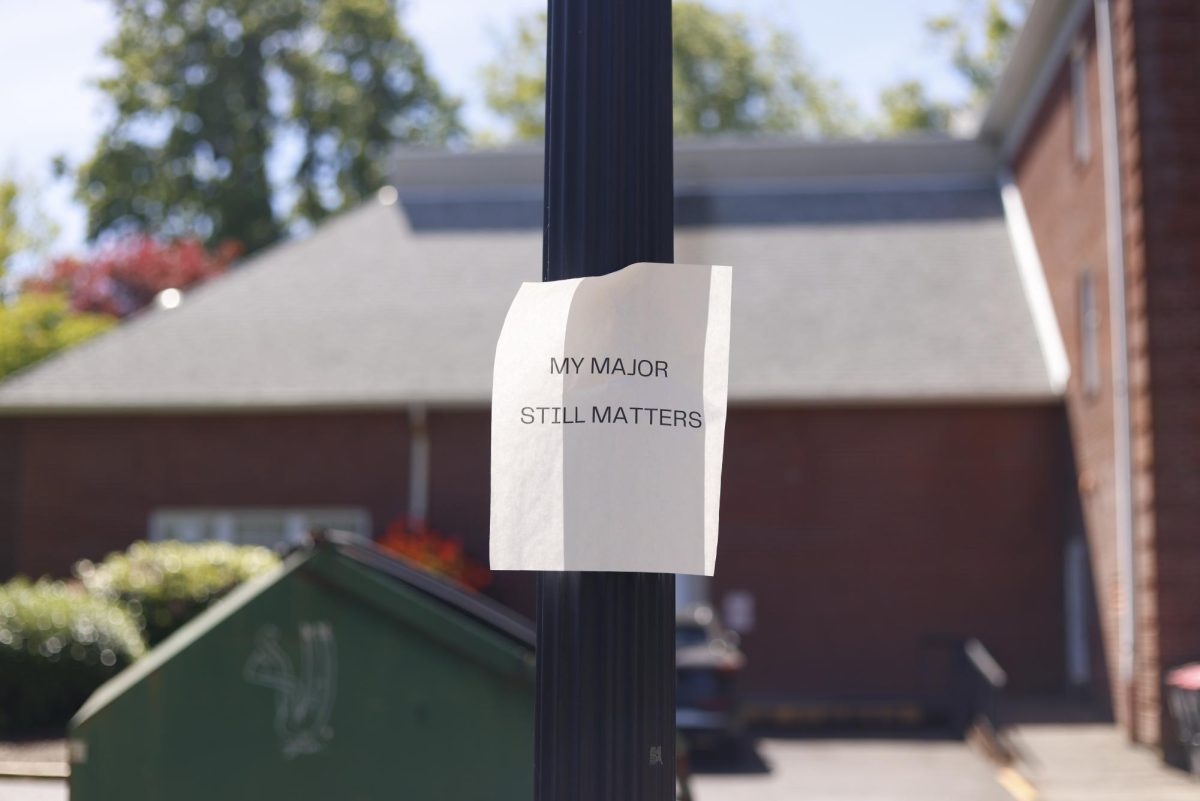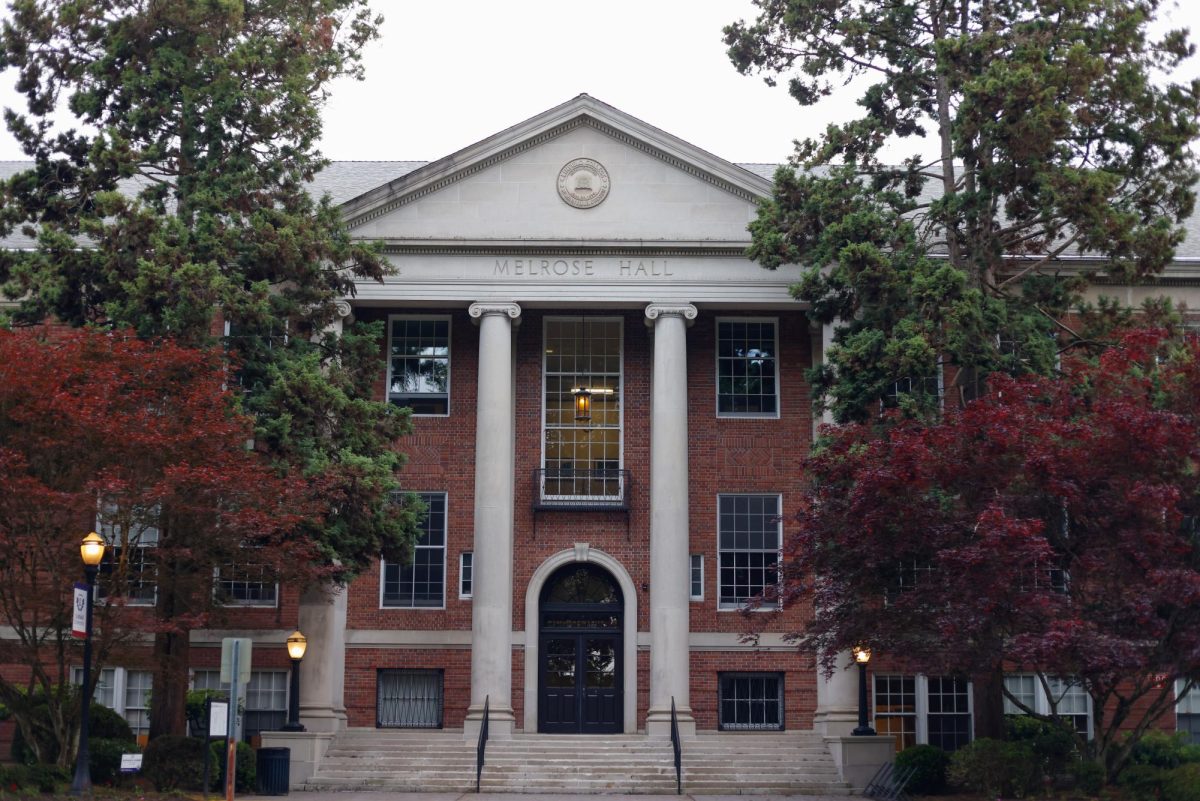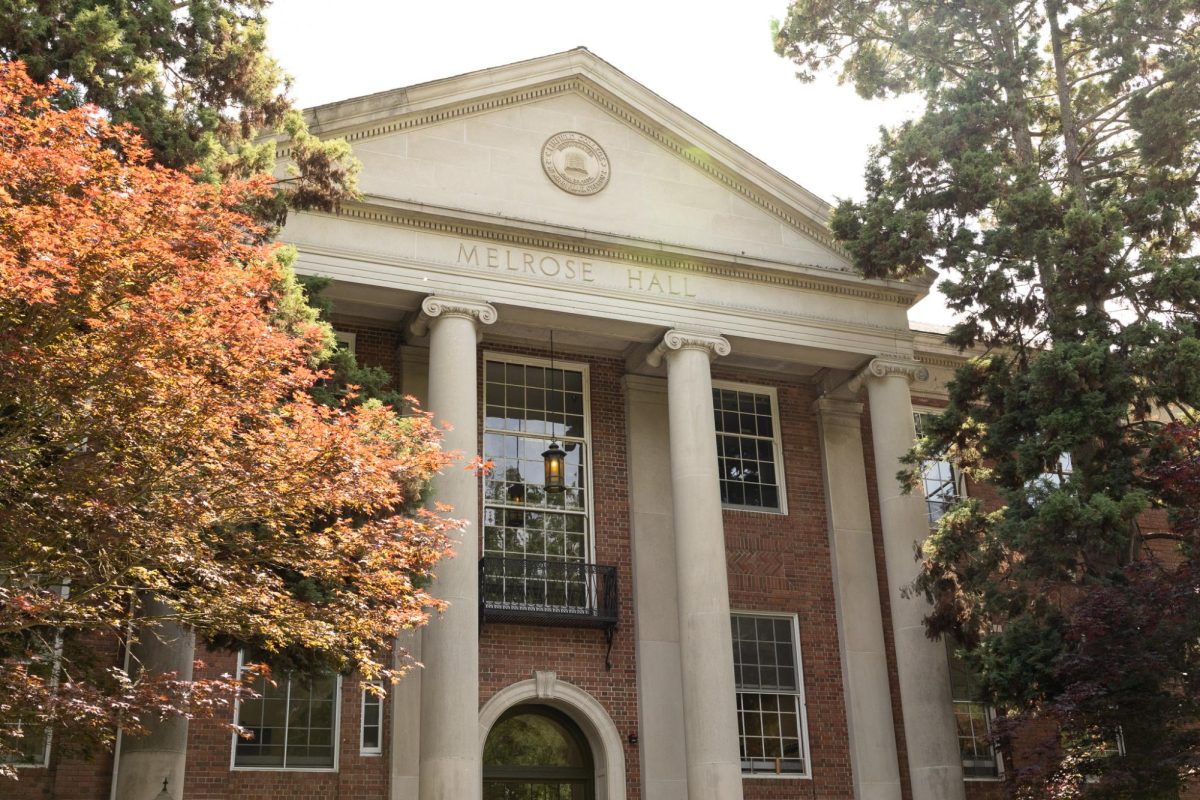“Humans love to understand the world around us,” guest speaker Brian Schmidt said.
Schmidt, a co-recipient of the 2011 Nobel Prize in Physics and leader of the High-Redshift Supernova Search Team, helped students, faculty, administration and community members begin to understand the universe during the Oregon Nobel Laureate Symposium: The Accelerating Universe on April 8 in Ice Auditorium.
The visiting professor from the Australian National University took the audience on a “tour of the universe” to better understand cosmology in its entirety. Schmidt explained the research and processes that led up to the 1994 discovery that landed him and his fellow High-Redshift Supernova Search team members a Nobel Prize.
He began his presentation by discrediting the popular belief that the expansion of the universe is slowing down. Schmidt’s team of 20 astronomers from five continents worked collaboratively to discover proof that the universe is in fact expanding.
The team of astronomers measured the universe’s behavior in the past billion years and compared it to that of the universe today. Schmidt and his colleagues indicated that the slowing of the universe affects how old we think the universe is, tells us the ultimate fate of the universe and predicts the shape and weight of the universe.
In 1994, with the help of major technology breakthroughs, the team was able to trace back 8 billion years of the universe’s activity. The 10-meter telescope gathered enough light from distant exploding stars to show how fast the universe has expanded in time.
Schmidt published this finding in two journals. In 2011, the team of astronomers was recognized for its discovery of the accelerated universe during a Nobel Prize award ceremony in Stockholm, Sweden.
During his presentation, Schmidt also discussed what is causing the universe to accelerate: dark energy.
Little is still known about this energy that is pushing the universe. However, Schmidt explained that the universe is a mix of approximately 30 percent normal gravitational matter pulling on the universe, 70 percent which is pushing the universe.
Dark energy is essentially invisible, making it difficult to observe. Schmidt desires to one day discover the dark energy particles that are pulling on the universe.
Schmidt concluded that the future of the universe is not dark matter. He said there is a battle between dark energy and dark matter, and as of now, dark energy is the future of the universe. As space continues to expand, more dark energy will push against gravity and thus create even more space and more dark energy.
He said that in the next 3.5 billion years, the nearest galaxies to Earth will collapse and form a super galaxy.
“One day, we will look out onto an empty universe,” he said.
Sarah Mason/Features editor
Sarah Mason can be reached at [email protected].






